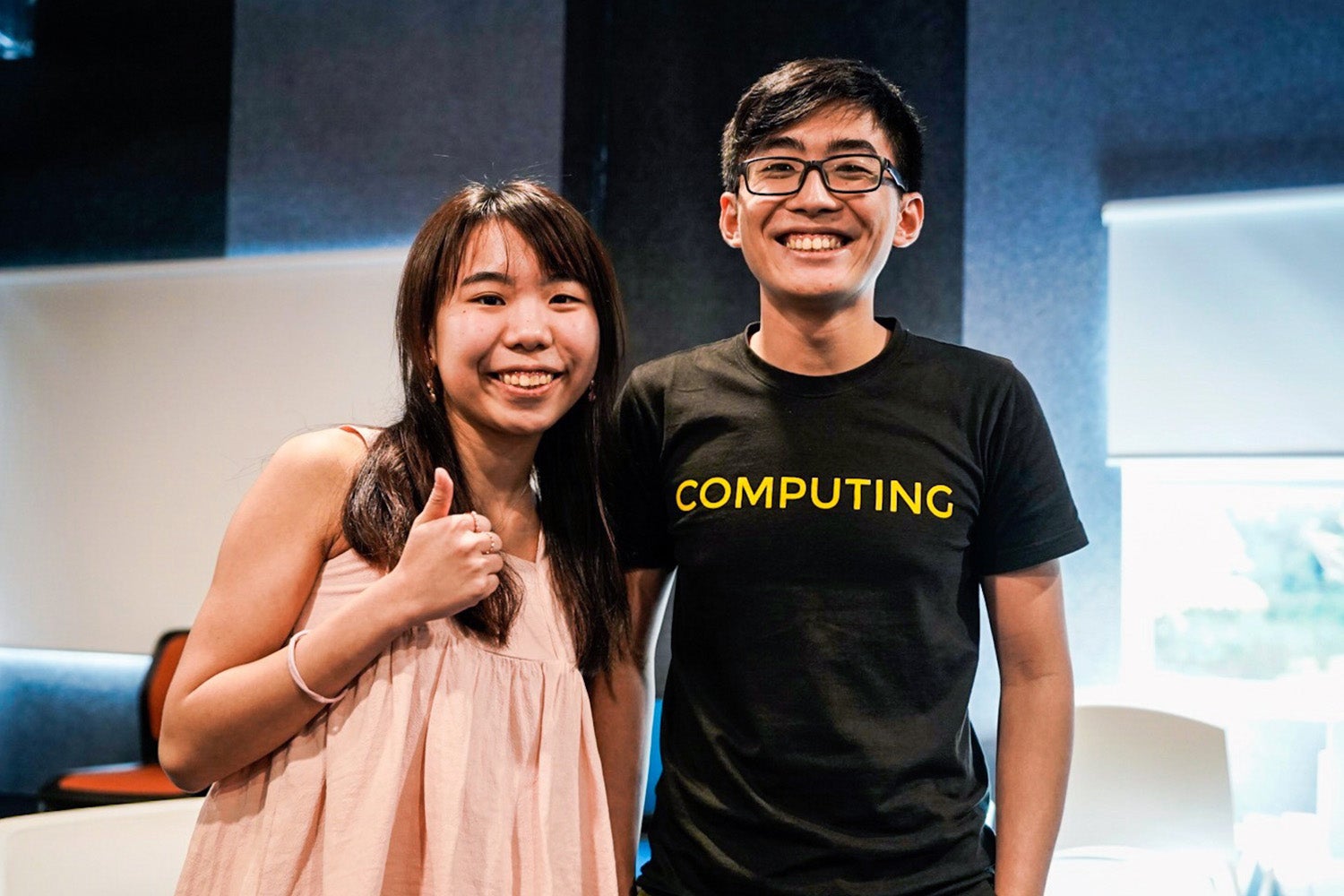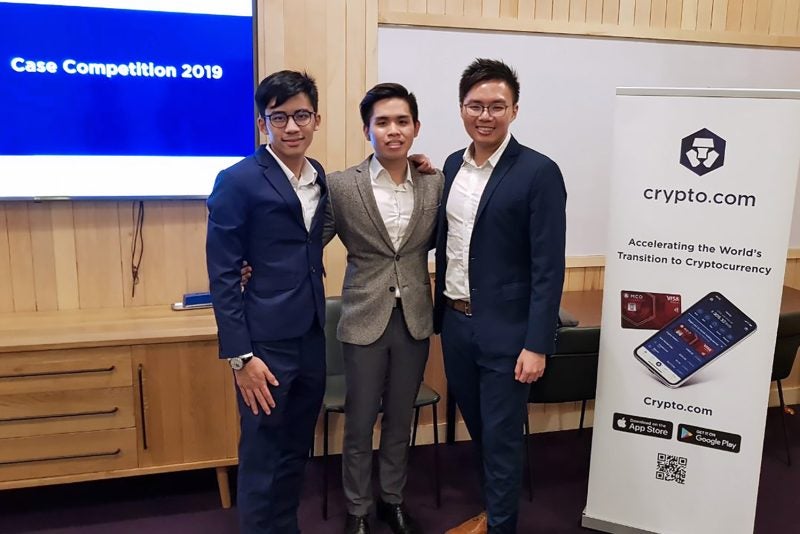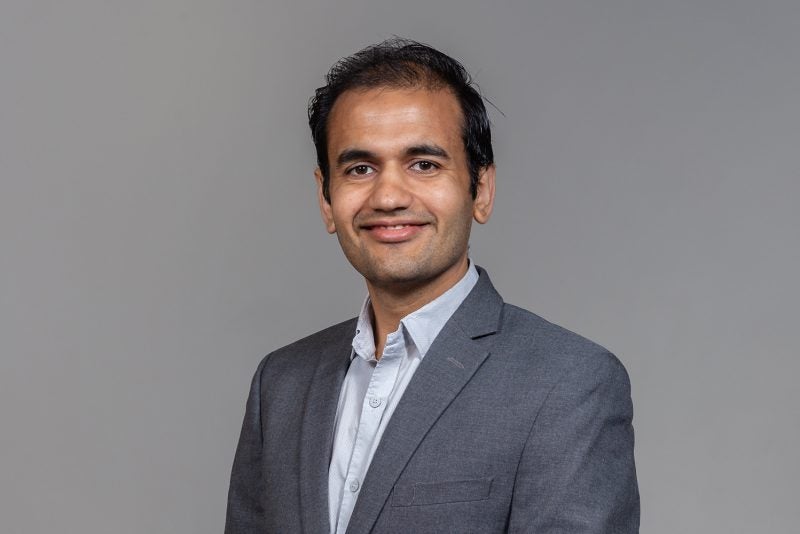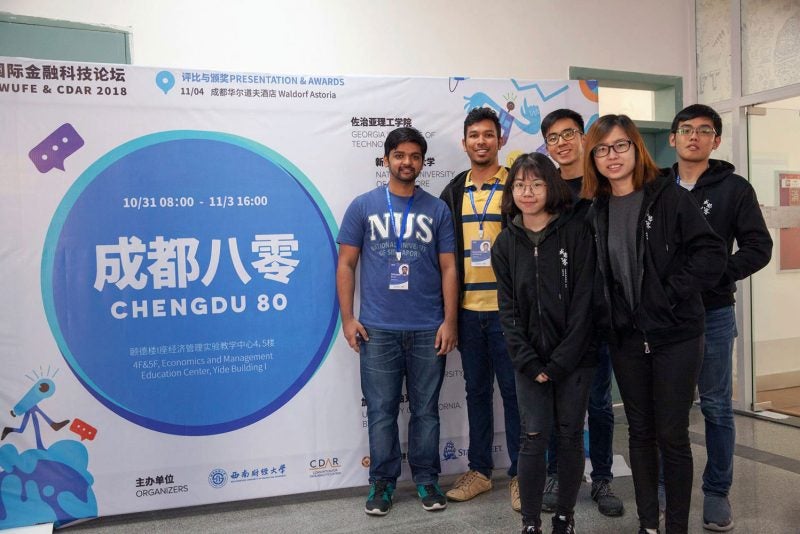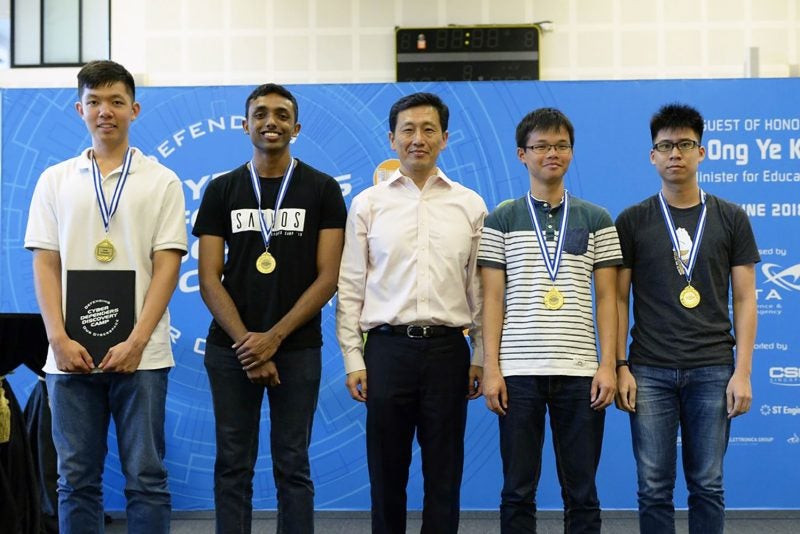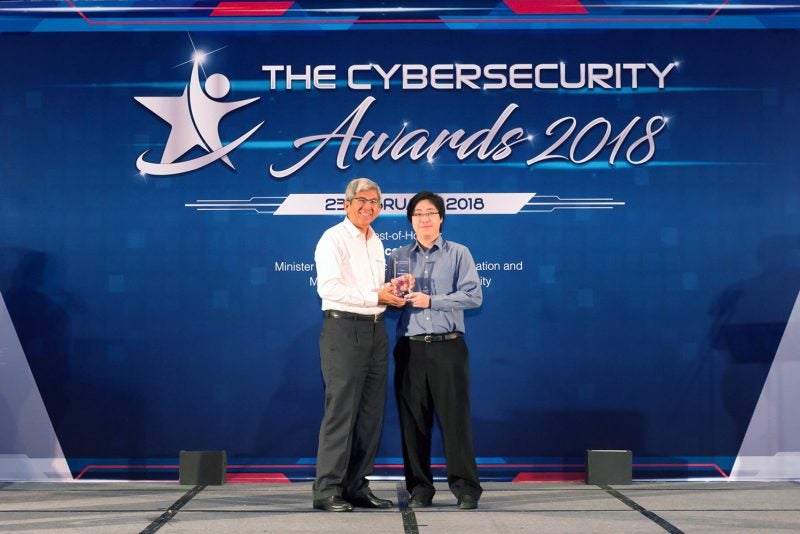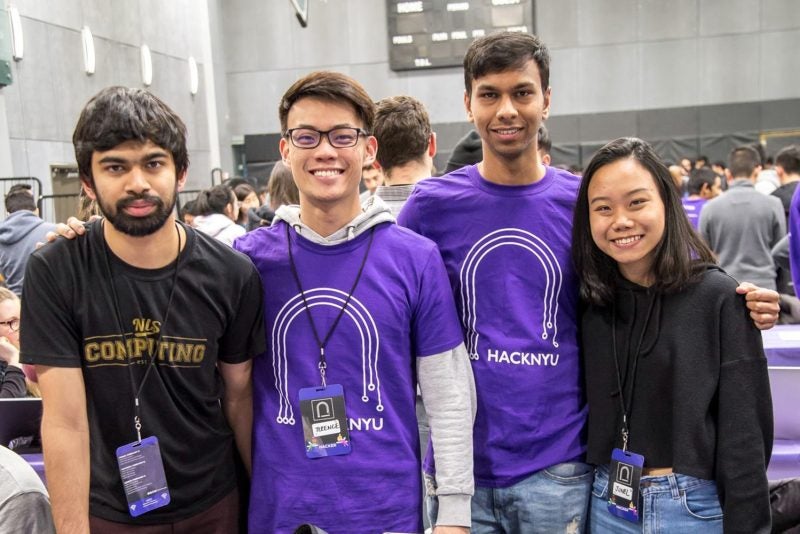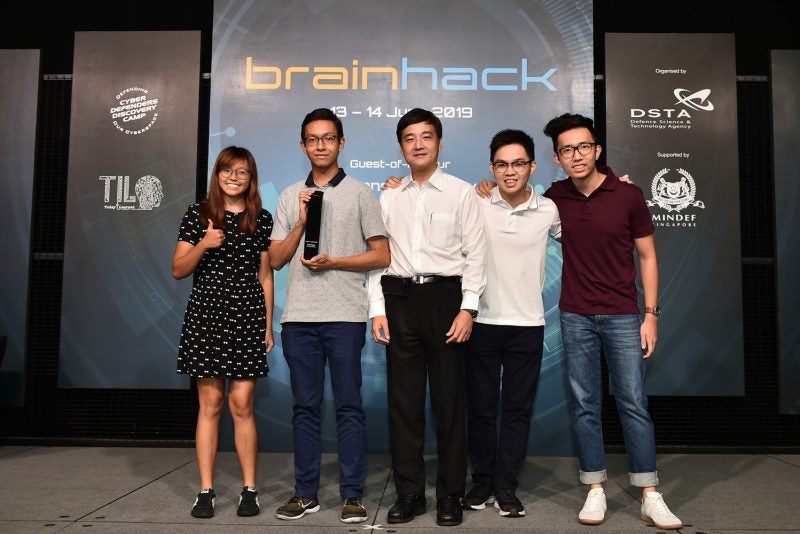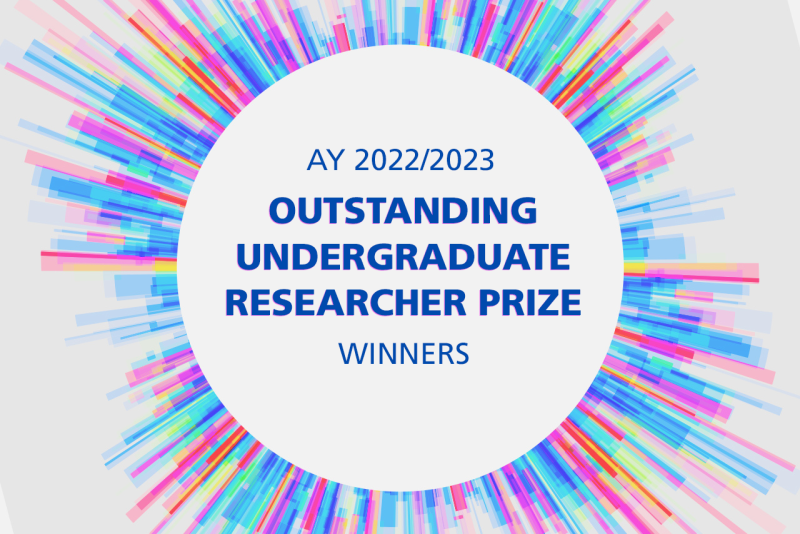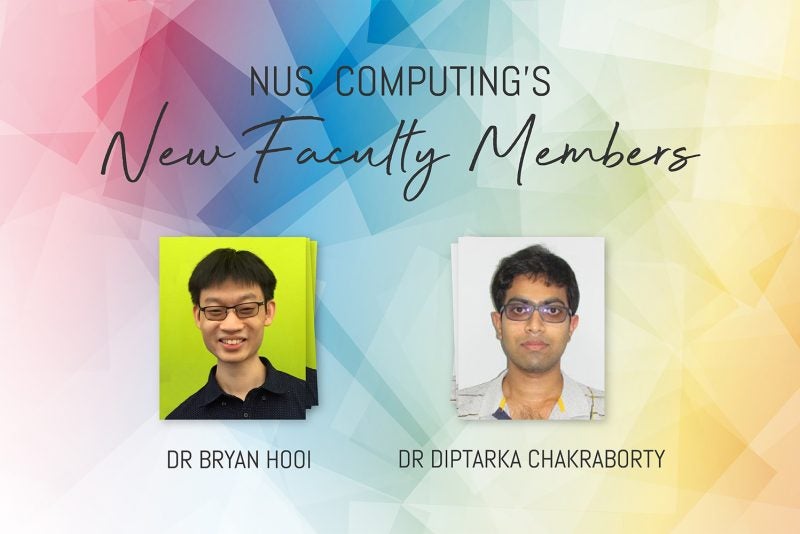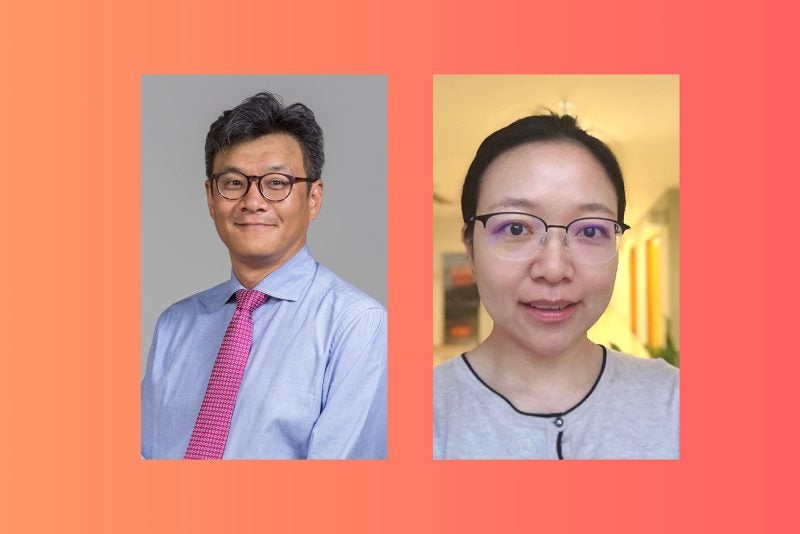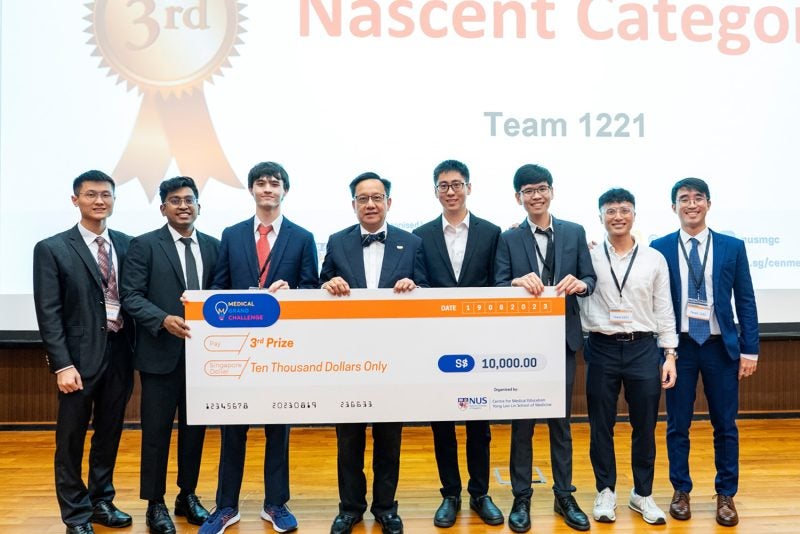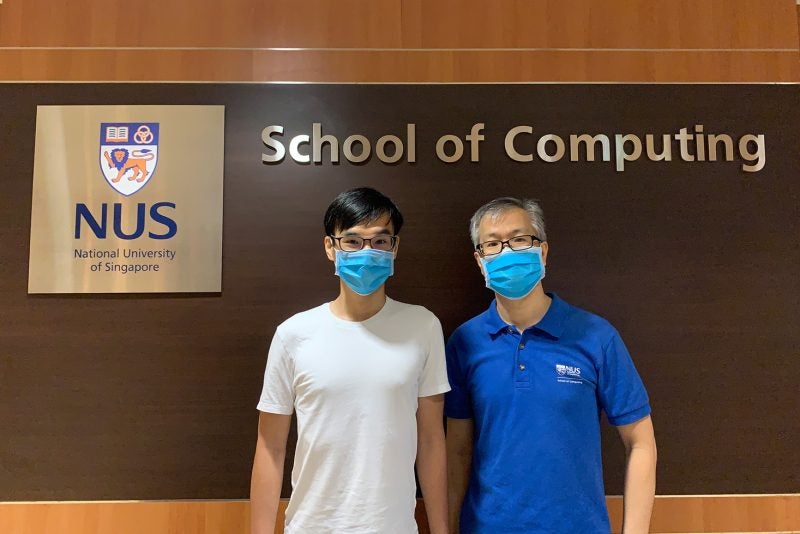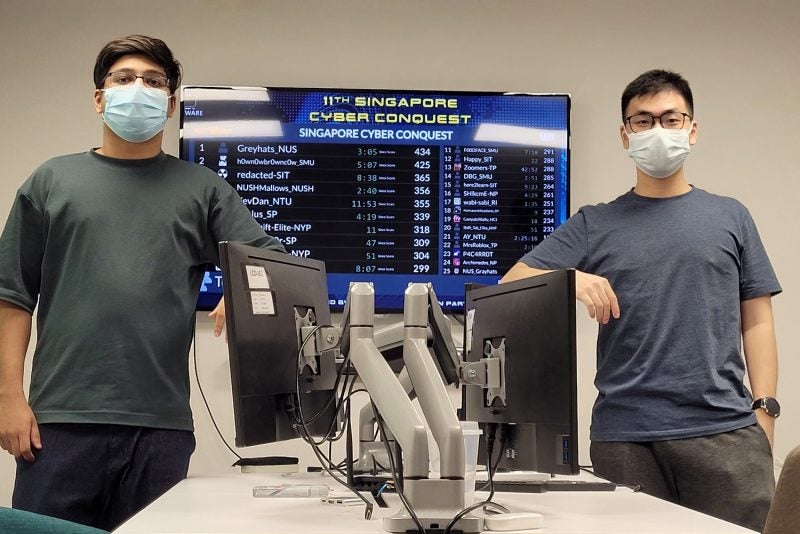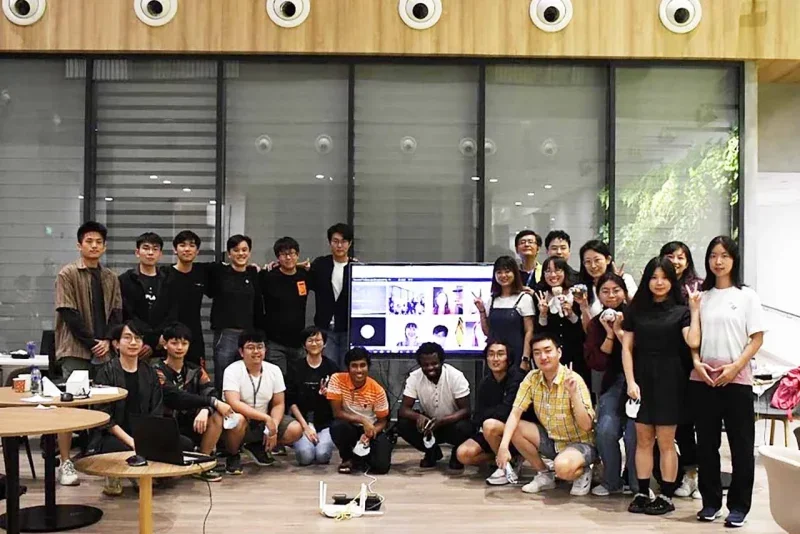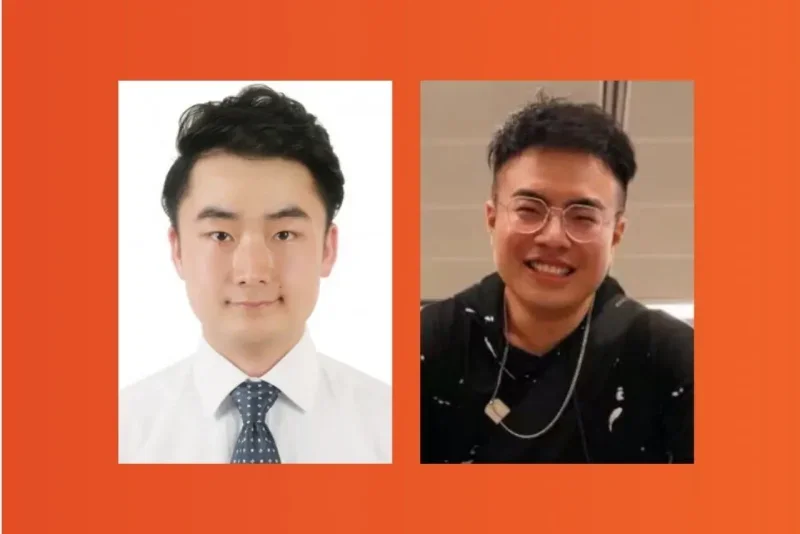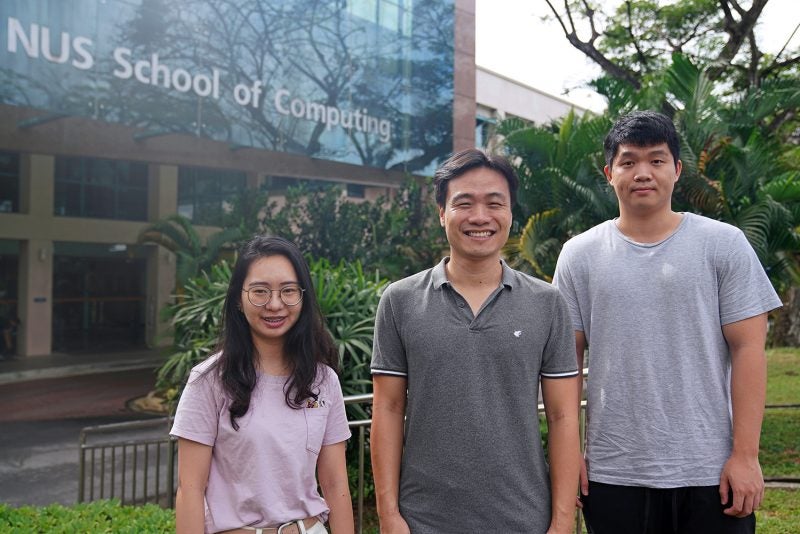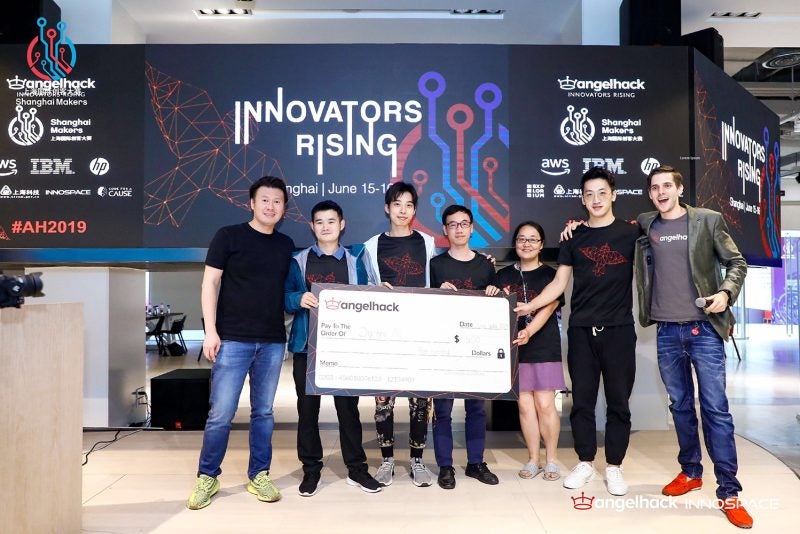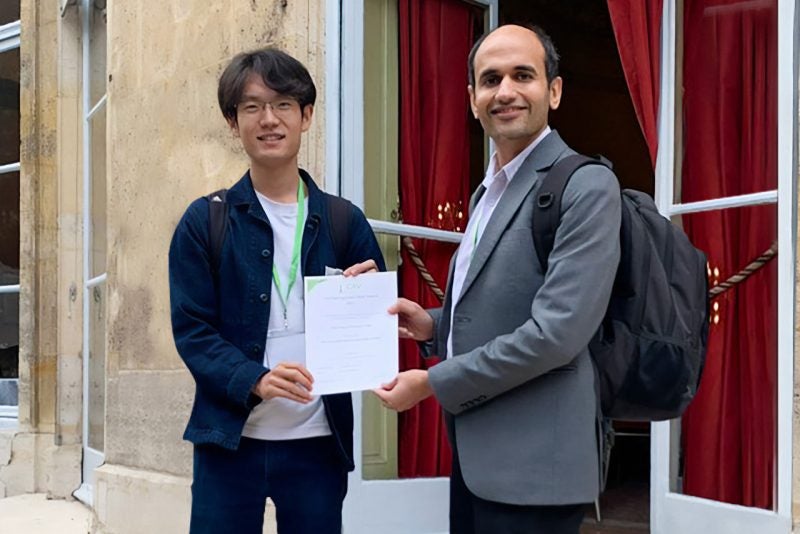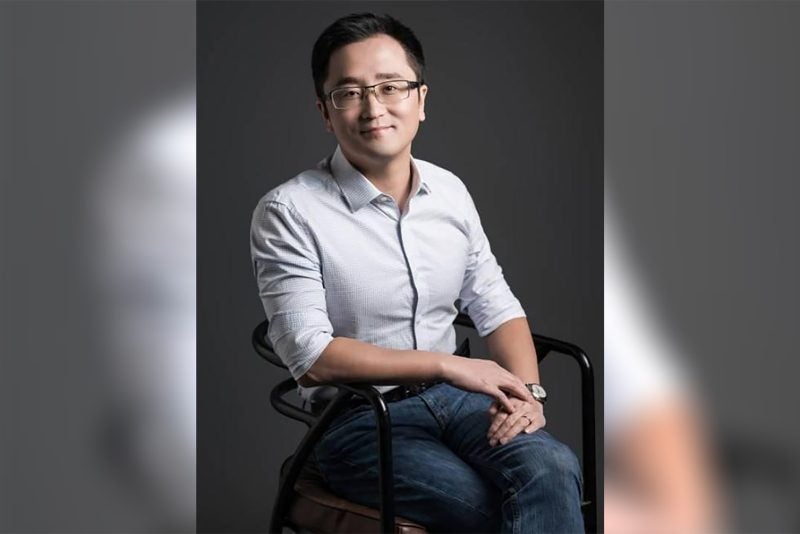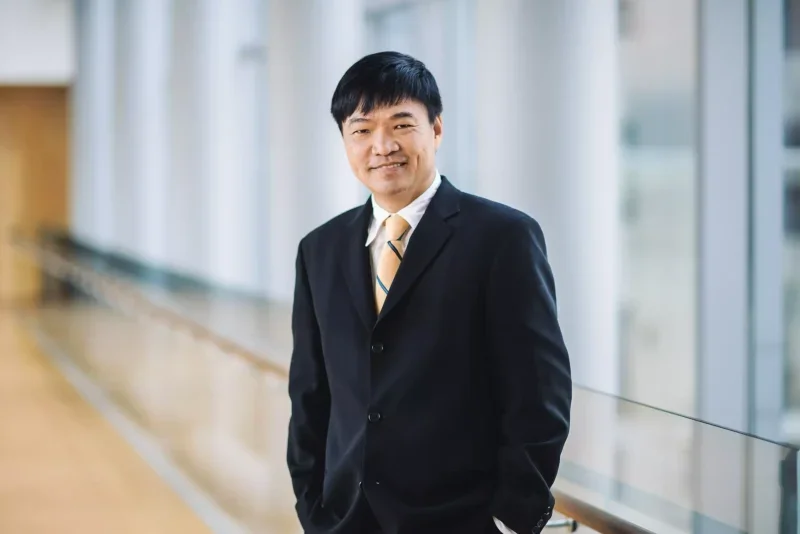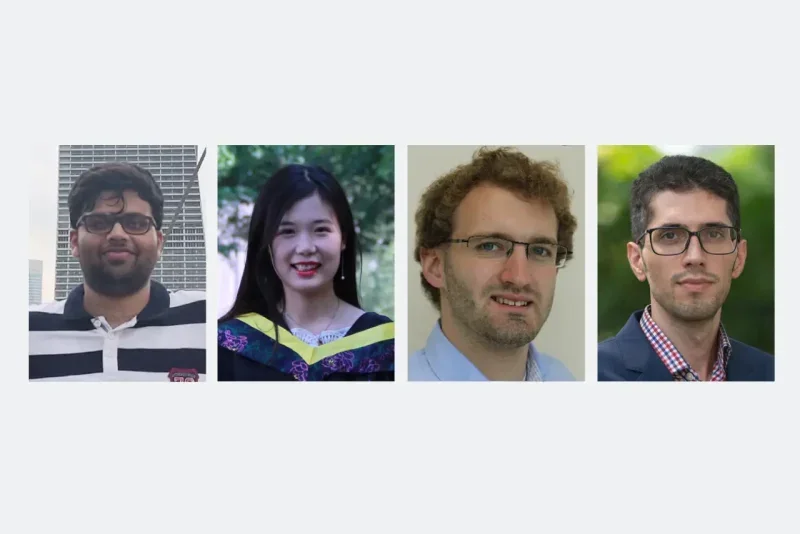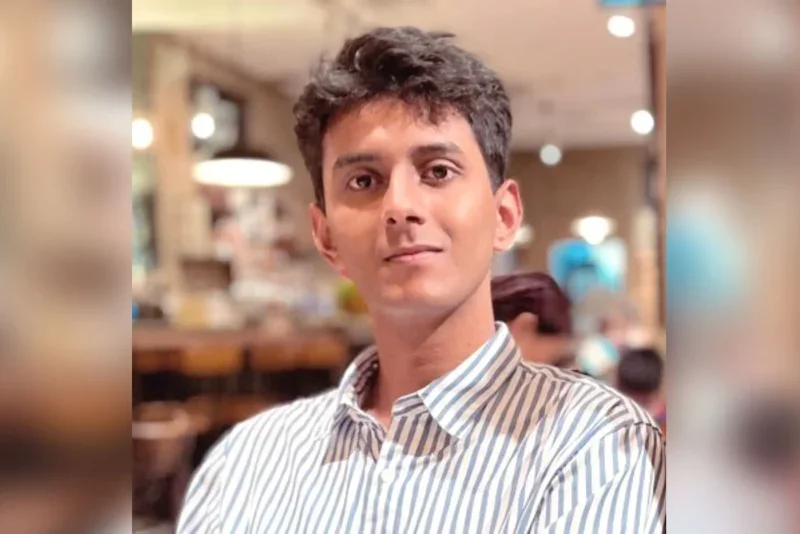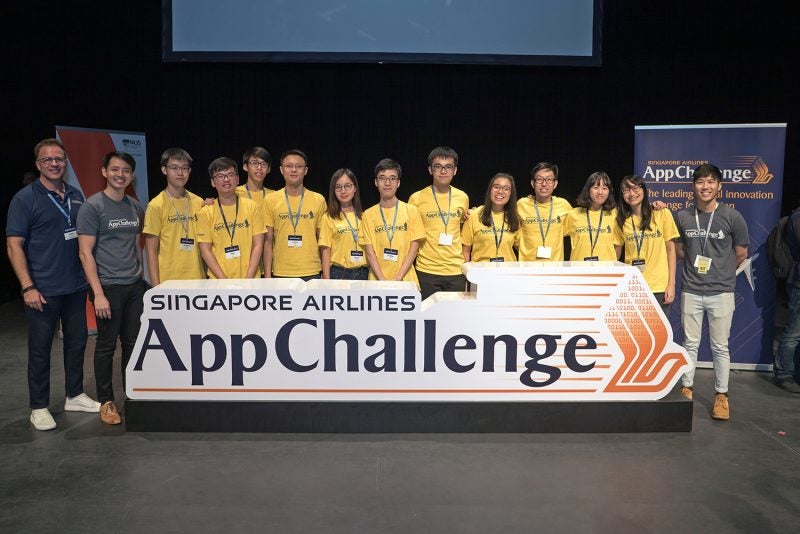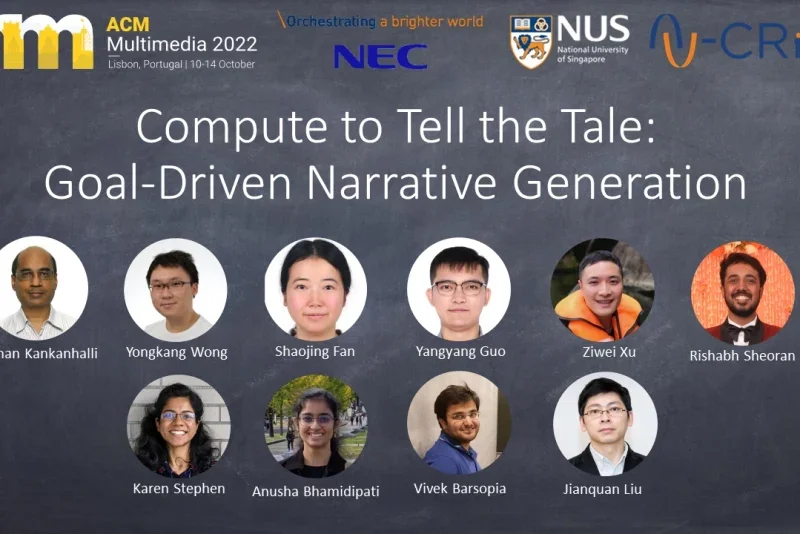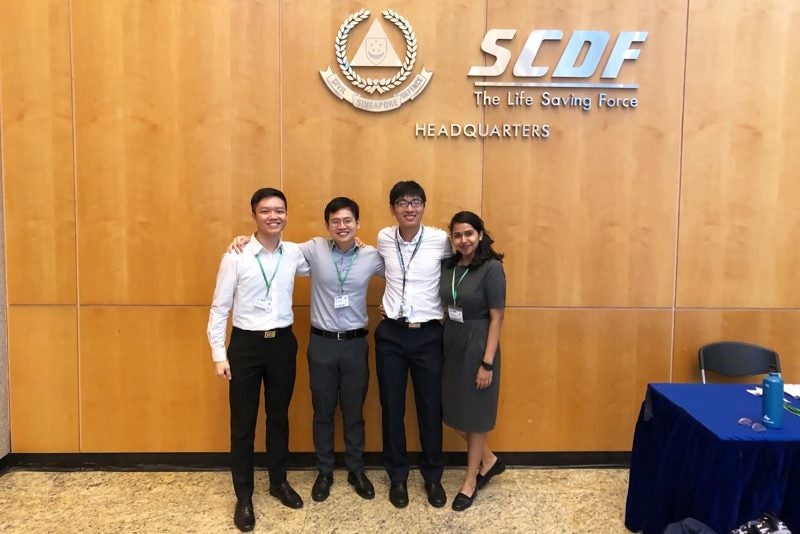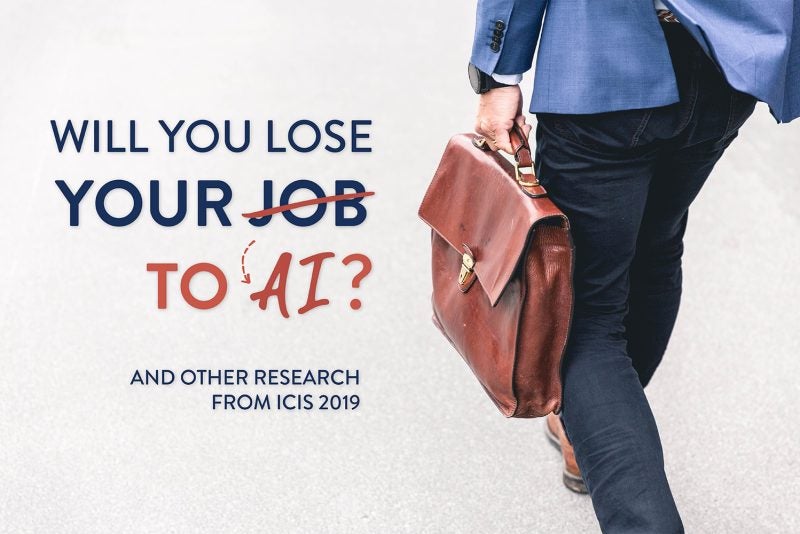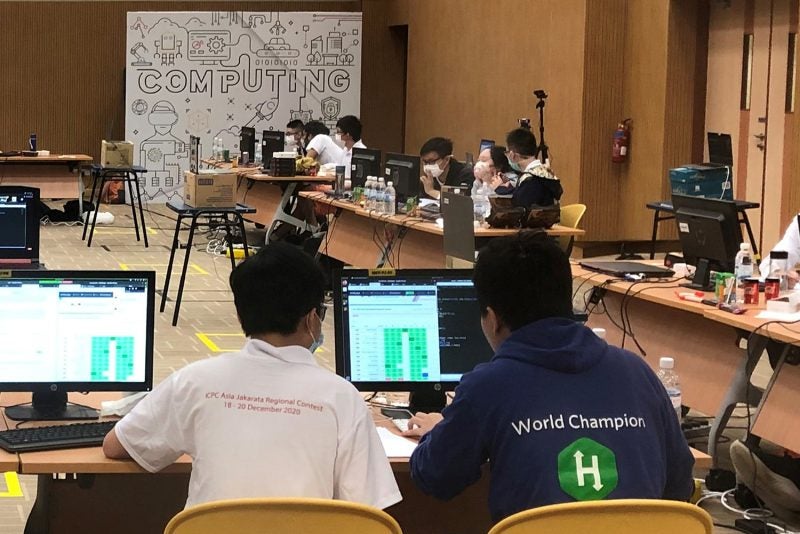13 August 2019 – Final year NUS Computing students Caryn Heng and Francis Lee won the Best VR Award at the XR.Hack competition held from 13 to 14 July 2019. The Best VR Award is the grand prize given out at the Extended Reality (XR) developer event organised by the AsiaVR Association and the Info-communications Media Development Authority (IMDA).
The competition encourages local and regional content producers and developers with an interest in Virtual Reality (VR), Augmented Reality (AR), and Mixed Reality (MR) to create an innovative XR demonstration. Francis and Caryn were one of seven teams to participate in the two day competition and the pair won a trip to Shanghai, China, where they will compete in the upcoming Global VR Hackathon.
In just two days, Caryn and Francis managed to develop a spatial awareness system for visually impaired users to navigate their surroundings using haptic feedback. The team used consumer grade devices—such as the HTC VIVE Pro and bHaptics Haptic Vest—to develop their system. “We had many features we would have liked to implement into our project,” said Francis. “However, with the limited time and manpower, we had to limit the scope of our project and focus on the main tasks at hand—ideation and implementation.”
The team initially struggled with the short amount of time given to develop their project, as they only decided on the type of hardware they wanted to use halfway through the competition and had limited access to the equipment.
Despite the setback, the team believed that their effort to create a convincing demonstration gave them the edge in the competition. “Our guests and judges were able to try out our prototype and have a firsthand experience of how the system works. Initially, we were nervous to demonstrate our work as we were the first team to present but those feelings faded after our demonstrator managed to navigate around our obstacle course safely,” said Francis.
“Both Caryn and I love participating in hackathons and XR.Hack was no exception. Hackathons provide a comfortable environment for us to develop prototype our ideas and also incentivise us to work hard for a set number of consecutive hours. While we were definitely glad to have won this competition, the reality of competing on a global scale has sunk in and we are both slightly nervous and excited for it,” Francis added.

